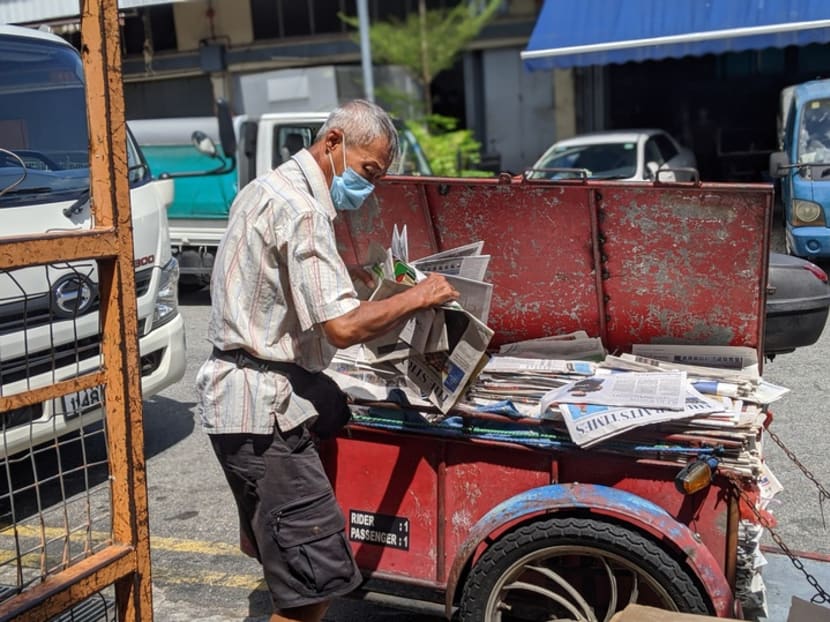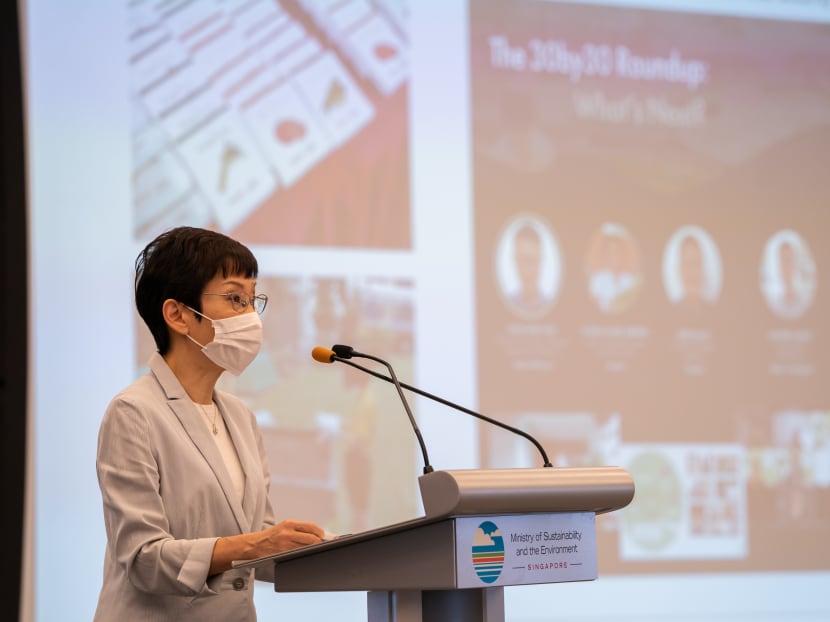S’pore should set up ‘functioning recycling industry’ that is not reliant on market forces: Grace Fu
SINGAPORE ꟷ Singapore needs to reassess its “karung guni” system of recycling and establish a “functioning recycling industry” to reduce the current system’s dependence on market forces, said Ms Grace Fu on Wednesday (Nov 25).

Singapore has relied on garung kuni men to collect and recycle waste, said Ms Grace Fu, Minister for Sustainability and the Environment, on Nov 25, 2020.
- Singapore’s recycling industry, which relies on karung guni men, is subject to market forces, said Ms Grace Fu
- To reduce this reliance, Singapore needs to set up its own recycling facility
- She was speaking during a question and answer session at MSE’s year-end appreciation event
- On Singapore’s push for greater food self-reliance, Ms Fu said traditional farmers need to lift their yield given land constraints
SINGAPORE ꟷ Singapore needs to reassess its “karung guni” system of recycling and establish a “functioning recycling industry” to reduce the current system’s dependence on market forces, said Ms Grace Fu, the Minister for Sustainability and the Environment, on Wednesday (Nov 25).
Rag-and-bone men, colloquially known as karung guni men, have typically collected recyclables from households before selling them to companies which may export them.
However, this means that the recycling industry is subject to decisions made by export markets, Ms Fu said.
“So when China, Malaysia or Indonesia stopped importation, you’ll find that actually there’s nowhere to export our plastic waste,” Ms Fu said, adding that Singapore needs to set up its own recycling facility and find better ways to extract value from waste.

Ms Grace Fu, Minister for Sustainability and the Environment, speaking at a year-end appreciation event for her ministry. Photo: MSE
She was responding to a question on the outlook for Singapore’s sustainability landscape in a question-and-answer session at the Ministry of Sustainability and the Environment’s (MSE) year-end appreciation event, held at the Environment Building and live-streamed on MSE’s Facebook page.
The event marked the launch of the first call for applications for the SG Eco Fund, a S$50 million fund to support ground-up projects that promote environmental sustainability in Singapore while involving the community.
The one-hour session was moderated by Mr Darren Tan, the head of education and community outreach at urban farm ComCrop, and also included Minister of State Desmond Tan.
Ms Fu spoke extensively on Singapore’s strategy to achieve its goal of meeting 30 per cent of its nutritional needs with locally produced food by 2030.
Dubbed the “30 by 30” goal, the strategy involves adopting research and development as well as technology to help local farms increase their yield.
Responding to a question on whether the Government’s push for farms to adopt technology could leave behind traditional farmers who are unable to make the shift to high-tech farming, Ms Fu said that the Government is not looking to acquire the land of older farms before their leases are up.
However, the Government wants conventional farmers to think of ways to increase their yield, given that Singapore is looking to reach its “30 by 30” goal amid land constraints.
Although it is “nostalgic” to see farmers work on soil, Ms Fu said that the industry will have to improve its productivity to make farming a more viable career option for young Singaporeans.
On whether urban farming may be environmentally sustainable given that it requires more resources to produce yield, Mr Tan, the moderator, said that it was important to consider the local context.
For example, if all of Singapore’s farms were to be soil-based, the farming industry would need a land area seven times the size of Singapore to produce enough food for the entire population.
On the other hand, importing sustainably-grown food from overseas would also have an impact on Singapore’s carbon footprint, said Mr Tan.
With land and labour cost being expensive in Singapore, producing intensively through urban farming is “actually quite sustainable”, said Mr Tan, who gave the example of how hydroponics farming conserves resources by requiring less water than conventional farming.
Chiming in, Ms Fu said that while the Government supports farms through grants and land allocation, it does not subsidise operating costs as farms need to prove that they can be commercially sustainable.
“So all the explicit costs have to be costed, and you have to make it work,” said Ms Fu.











